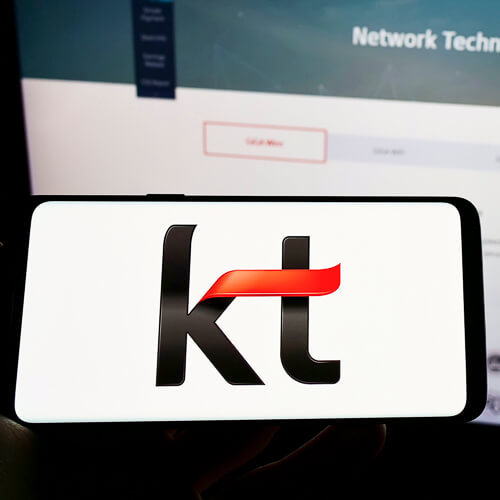
Growth in media and enterprise and a big drop in marketing cost have powered KT Corp to a strong first quarter.
It booked a 39.5% higher net profit of 455.4 billion won (US$350 million) and 41.1% higher operating income of 626.6 billion won ($491.4 billion).
The numbers blew past analysts' expectations. Financial data firm Yonhap Infomax said analysts' average earnings forecast was 360.4 billion won ($283 billion).
Figure 1:  In contrast to the struggling legacy businesses, KT's content and media portfolio is in the sweet spot.
In contrast to the struggling legacy businesses, KT's content and media portfolio is in the sweet spot.
(Source: Timon Schneider/Alamy Stock Photo)
Group revenue was just 4.1% higher, with a modest contribution from the core wireless and broadband businesses.
5G now accounts for 50% of its customer base, the operator said, but it is seeing little gain.
It added 572,000 5G customers for the quarter, taking the total to 6.95 million. But wireless sales edged just 1.9% higher, while broadband revenue improved only 2.6%.
Handset hangups
One factor in the weak wireless growth was the 11% fall in handset sales. Ironically this was a net benefit because it also meant lower marketing cost and handset subsidies – down 6.7% and 11.7% respectively.
The operator limited growth in operating expenses to just 1.2%.
CFO Young-Jin Kim said on an earnings call the drop in handset demand was because of the lower number of new device launches in the quarter.
He acknowledged that the likely debut of many high-end phones in the second half of the year would add to cost pressure, but the company aimed to limit marketing expenses to below last year's level.
The sweet spot
In contrast to the struggling legacy businesses, KT's content and media portfolio is in the sweet spot.
New TV production house Studio Genie would likely turn a profit this year, Kim said, with ten titles created for this year and another 20 slated for 2023. He said the operator was eyeing a possible future IPO for the unit.
The content subsidiaries, including Studio Genie, generated sales of 270 billion won ($209.4 million), up 35.5% over last year.
Want to know more? Sign up to get our dedicated newsletters direct to your inbox.
IPTV grew 9.3% to 486 billion won ($381.5 million) while satellite service Skylife posted 243 billion won ($188 million) in revenue, up 44%.
The enterprise businesses also gained traction, led by the AI segment, which grew 41% on the back of demand for KT's AI-based contact center and its automated secretary service for small businesses.
The cloud and data business, which is about to be shifted into a new digital infrastructure subsidiary, expanded 15%. Telco enterprise services boosted sales by 7%.
KT's stock rose 3.95% in Thursday trading on the Korea Exchange.
Related posts:
— Robert Clark, contributing editor, special to Light Reading
Read more about:
AsiaAbout the Author(s)
You May Also Like












